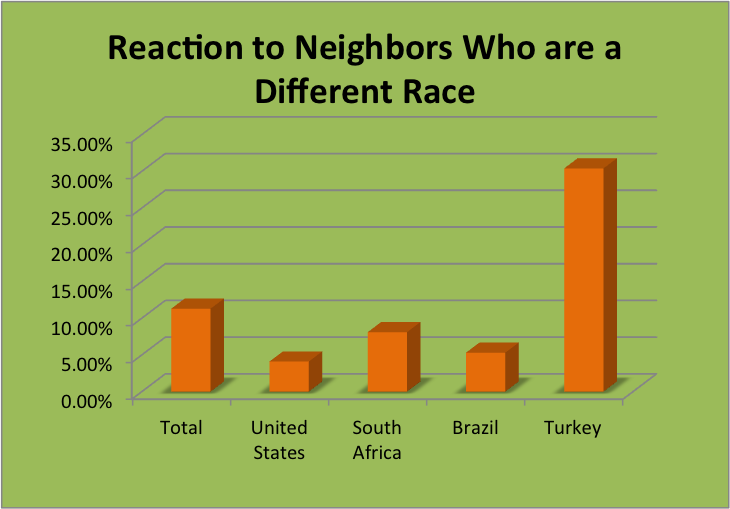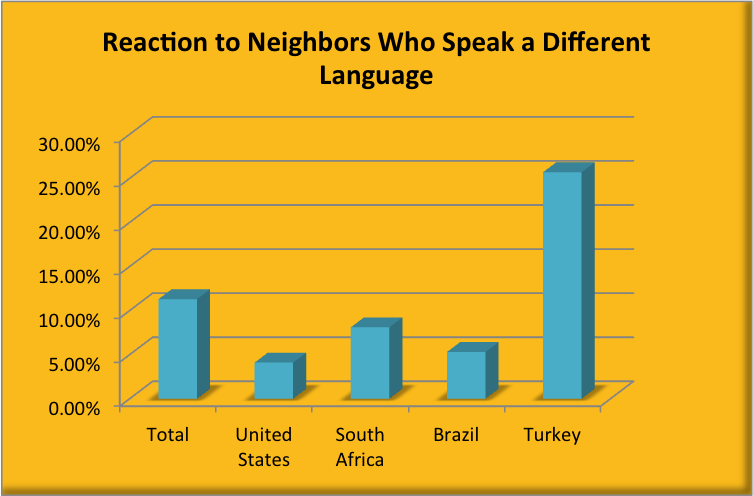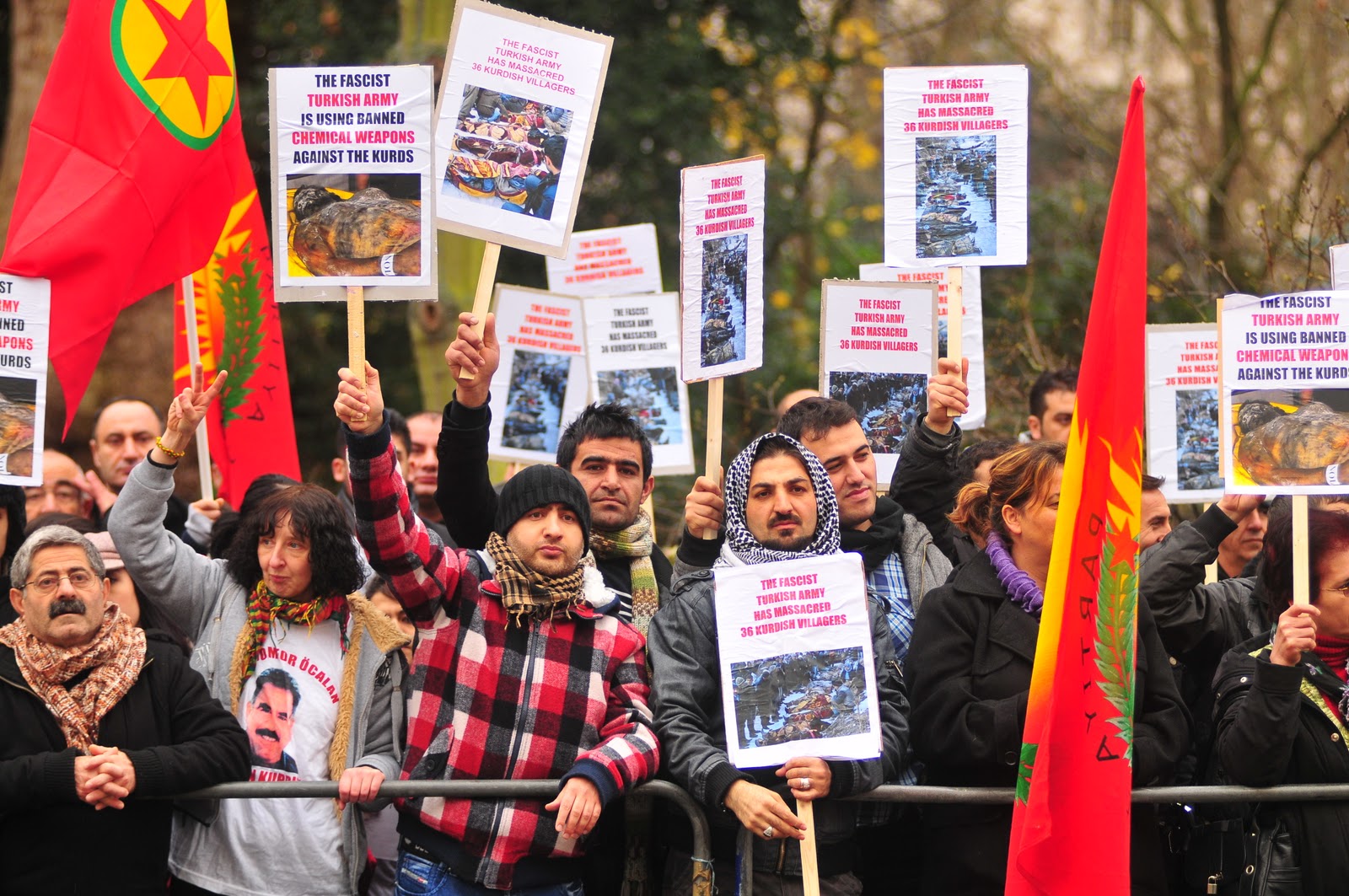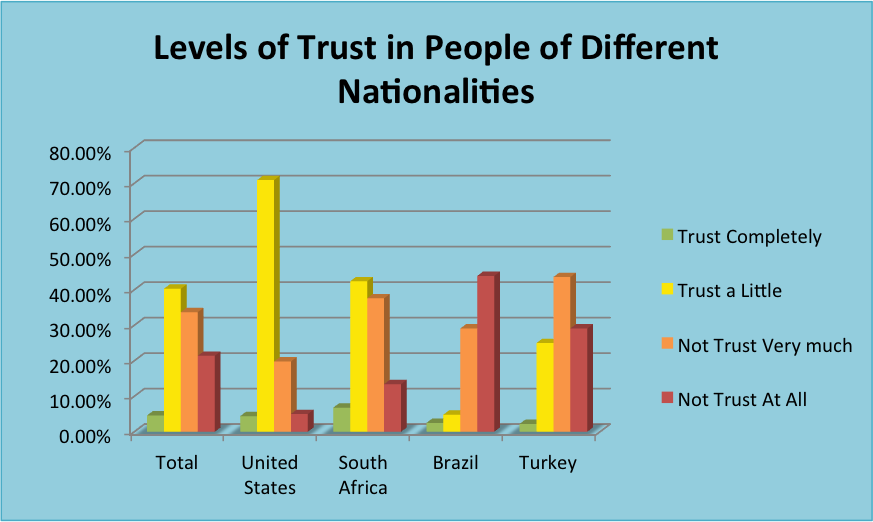Kurdish Distrust In Turkey
Recent Studies
The Middle East Technical University (METU) recently performed a study analyzing levels of anti-Kurdish sentiment in Turkey. The study found that middle-class Kurds that have moved to cities – away from Kurdish populated rural areas – faced new prejeudices and stereotypes labeling them “benefit scroungers” and claiming they “disrupt urban life”(Saraçoğlu C.). This attitude resembles anti-chinese sentiment in the United States during the twentieth century and anti-mexican sentiment exhibited in the U.S. today. All three prejudice sentiments represent locals’ fears of reduced resources spurred by an influx of newcomers. However, in the United States such sentiments have been directed against immigrants coming from abroad, while in Turkey, migrants from within Turkey are the targets of prejudice. This brings interesting insight into attitudes facing Kurds in Turkey. Namely, the Kurds are seen as immigrants, or non-members of society, coming to ransack resources. This view of Kurdish people as outsiders explains Turkish justification for Kurdish discrimination.
A second study from the Social Science Quarterly confirms “high levels of anti-Kurdish beliefs in Turkey” (Dixon). In contrast to the METU survey results, this data suggests that anti-kudish sentiment is not a result of competition for resources, but of nationalism and globalization (Dixon). This is congruent with attitudes of Turkish legislation and institutions (see “Institutions” section). Turkish legislation operates under the pretense that the Kurds are disloyal members of society, choosing not to assimilate and become Turks. This puts forth the image of Kurds as an alien group, threatening the wellbeing of Turkish society. In this way, the expression of Kurdish culture is seen as anti-turkish, and brings about responses of resentment towards Kurds.
World Values Survey
The World Values Survey is an international information bank that collects data from surveys conducted in 57 countries. The 2005-2008 survey for Turkey collected data from 1346 respondents regarding home life, politics, nationality and other general topics. This data sheds light on Turkish attitudes regarding ethnicity.
In the first question (results below), respondents were given a list of various groups and asked to select any that they would not like to have as neighbors. 30.4% Turkish respondents asserted that they would not want to live next to someone of a different race. When compared to countries with a history of racism – Brazil (5.3%), South Africa (8.1%) and the United States (4.1%) – this number remains a significant indicator of racist sentiment in Turkey. (World Values Survey 2006-2007)

Percentage of people that would not want to have a neighbor of a different race (by country) - World Values Survey 2006-7
The same survey question also listed “people who speak a different language” as a possible option (results below). Because the Kurds are best identified as speaking Kurdish rather than Turkish, language is a key identifier of ethnic difference in Turkey. 25.7% of Turkish respondents asserted that they would not want people who speak a different language as neighbors. In comparison to the United States (11.1%) and South Africa (7.9%), which also attach ethnic stigmas to certain languages, distrust remains twice as high in Turkey.

Percentage of people that would not want someone who speaks a different language as their neighbor (by country) - World Values Survey 2006-2007
In another survey question, respondents were asked how much they trusted people of a nationality different then their own (results below). They were asked to select from the following options: “Trust completely”, “Trust a little”, “Not trust Very much” and “Not Trust at all”. Of the 1346 Turkish respondents who answered the question, 72.7 % said that they do “not trust very much” or do “not trust at all” people of different nationalities from their own.
This question proves especially pertinent in Turkey because the Kurds view themselves as a minority nation within Turkey. The PKK and other Kurdish groups have the primary goal of attaining Kurdish political independence and establishing Kurdistan as a recognized nation-state. It is for this reason that a question about nationalism is very important when examining ethnic relations in Turkey.
Ultimately these results show that prejudice attitudes in Turkey are at the same level, or at a higher level, of those in South Africa, Brazil and the United States, which all have a history of racial discrimination. This provides evidence that Turkey is a radicalized society, with discriminatory attitudes against Kurds being on par with Blacks in South Africa, Brazil and the United States. This supports the argument that the Kurds should be recognized as their own race, since they experience prejudices comparable to marginalized racial groups in other societies.


